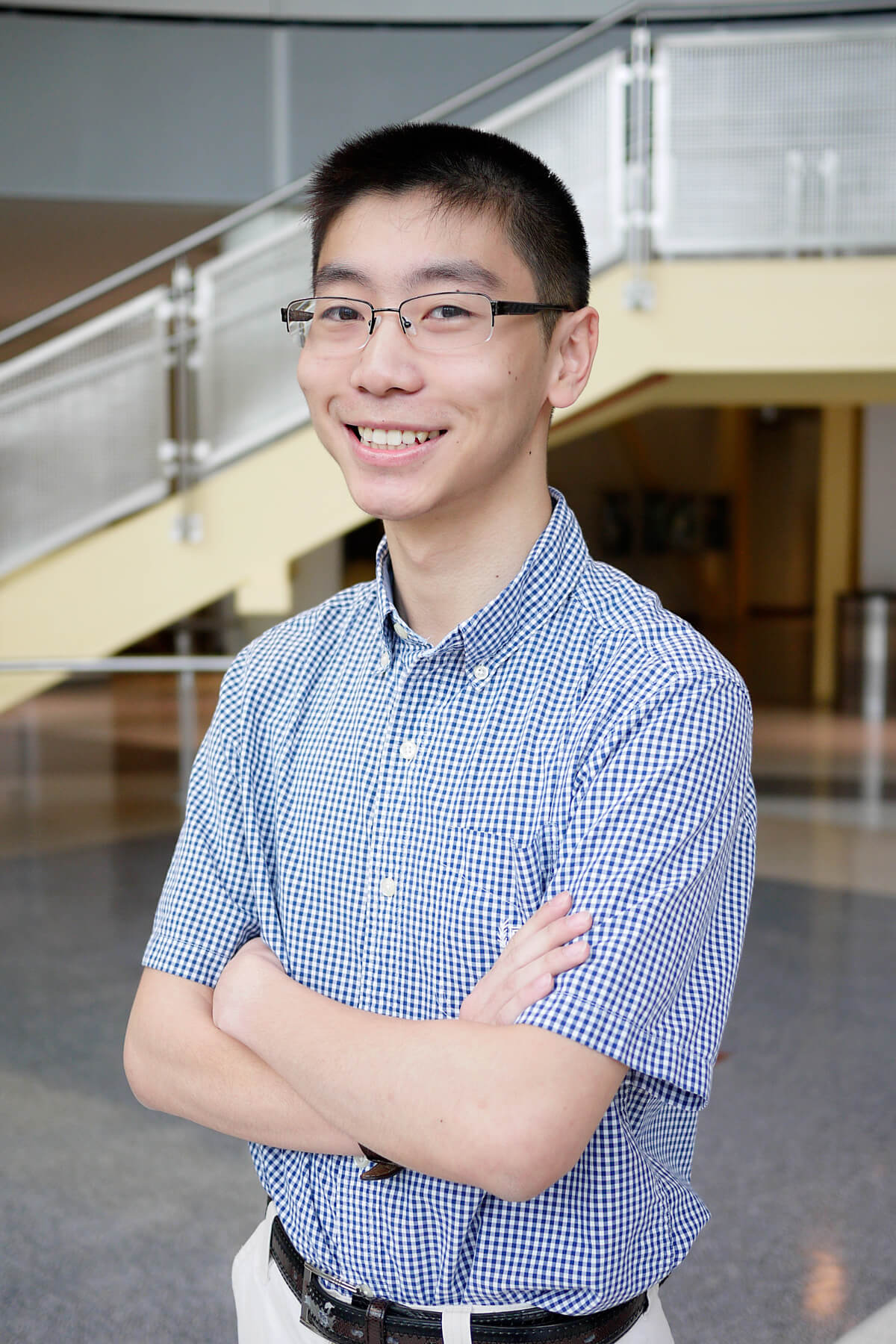- January 15, 2019
- By Alyssa Tomlinson
Bioengineering major Eric Wang ’19 is one of 16 students nationwide awarded a 2019–20 Churchill Scholarship, which offers full funding for a one-year master’s degree in science, mathematics or engineering at the University of Cambridge in the United Kingdom.
The prestigious award—established in 1963 and administered by the Winston Churchill Foundation of the United States—covers tuition and fees, living expenses and travel. Winners can also apply for a $2,000 special research grant.
Wang, who was also named a 2018 Goldwater Scholar by the Barry M. Goldwater Scholarship and Excellence in Education Program, will pursue a master’s degree in chemistry. Working in University of Cambridge Professor Michele Vendruscolo’s lab, Wang plans to use computational methods to study biochemical systems in hopes of understanding Alzheimer’s and other diseases.
“Eric’s passion for science, engineering and mathematics is bolstered by his drive to impact others through his work,” said John Fisher, chair of the Fischell Department of Bioengineering. “So early in his research career, he has already demonstrated an inherent ability to tackle challenging concepts with the fearlessness and resolve of a veteran scientist.”
Wang, a member of the University Honors program in the Honors College and a recipient of a 2017 Howard Hughes Medical Institute Research Fellowship, is interested in molecular dynamics, a computer simulation method that models the physical movements of biomolecules.
“These simulations allow access to an atomic level of detail, providing mechanistic insights unavailable to most experiments,” Wang said. “As I gain more experience with molecular dynamics, the range of questions my research can answer continually expands, and with it, my passion for the field.”
In 2016, Wang began working with Jeffery Klauda, associate professor of chemical and biomolecular engineering. Under Klauda’s guidance, he focused on modeling the outer layer of the skin—known as the stratum corneum—which protects the human body from damaging and toxic compounds. Topical skin drugs, however, need to be able to penetrate this barrier in order to work effectively.
“Eric’s research is cutting edge, in that it is the first to fully probe the complex behavior of the stratum corneum at a fully atomistic level, with a potential to provide models for future studies of drug delivery,” Klauda said. “Eric has been the sole researcher in the lab working on this project, at the level one would expect of a top Ph.D. graduate student.”
Wang has published five papers, on which he served as either first author or co-first author. He is a UMD President’s Scholarship and an A. James Clark Scholarship recipient. He is a member of Catholic Terps and Knights of Columbus, a teaching assistant for engineering courses, a mentor to a local high school student in bioengineering research, and a tutor at local K–12 schools.
“The Churchill Scholarships are a bit like Nobel Prizes for the nation’s most promising student scientists, and so Eric’s achievement is extraordinary,” said Richard Bell, an associate professor of history who serves as the university’s faculty advisor for the United Kingdom fellowships. “And, it’s well-deserved—a fitting recognition of his unrelenting focus and work ethic and his capacity to think his way around every problem that science has put in his path."
Topics
PeopleTags
Bioengineering